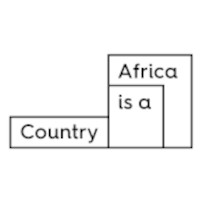In 1973, Josie Fanon interviewed then-ANC president Oliver Tambo about Israel and apartheid South Africa. Originally printed in French, it is now available in English for the first time.
Palestine 2009. Israel’s Wall in Bethlehem, West Bank. CC:BY (Montecruz Foto)-SA
Lire en français ici.
In July 2021, the chair of the African Union Commission granted observer status to Israel. Several member states immediately condemned the decision, with South Africa and Algeria emerging as the most vocal opponents. Both countries argued that granting Israel observer status would not only undermine the African Union’s longstanding commitment to Palestinian freedom but erode the values on which the AU was founded.
The AU is the successor to the Organization of African Unity (OAU). Established in 1963 with the support of 32 independent African states, the OAU’s charter pledged to oppose colonialism, apartheid, and racism across the continent. With a founding commitment to decolonization in Africa and a recognition of national liberation movements as the official representatives of colonized and oppressed peoples, the African Liberation Committee (ALC) was quickly created. The ALC was mandated with offering “moral and material assistance” to national liberation movements, including the African National Congress (ANC). Members of the OAU affirmed their total and unconditional solidarity with the people of South Africa and their legitimate struggle for freedom and national liberation, assisting through diplomacy and with the training and resources required for armed struggle.
In May 1973, the tenth session of the OAU was held in Addis Ababa. It was attended by the president of the ANC, Oliver Tambo. Tambo had spent the last decade in exile, tasked with mobilizing international opposition to apartheid. While South Africa remained a key priority on the OAU’s agenda, the focus of this meeting was Israel’s continued occupation of the Sinai Peninsula following the 1967 Six-Day War. The emerging resolution drew attention to Israel’s threat against “the security and unity of the African continent as a result of its continued aggression.”
During the summit, Tambo was interviewed by the press attaché for Algeria, Josie Fanon. Born in France, Fanon moved to Algeria in 1962, shortly after independence, where she worked as a journalist for El Moudjahid, the official state newspaper. Fanon edited the news bulletin on Latin America and Southern Africa, demonstrating a particular interest in the resistance movements of Zimbabwe and South Africa. Her visit to Johannesburg the following year would be recorded by the Security Branch of the apartheid police.
In February 2024, the African Union formally withdrew Israel’s observer status.
The interview below was originally published in Révolution Africaine, April 1973. It has been translated from French into English.
Israel and South Africa: Two expressions of the same imperialism
It has often been said that the tenth summit of the OAU was a milestone of maturity. Without indulging in rhetoric or falling into self-congratulation, the participants in this latest OAU conference can, in any case, take pride in two things: the emergence of certain contradictions did not lead to the breakup of the OAU; secondly, the fact that these contradictions were brought to light (with some expressing openly and bluntly what others were thinking quietly) allowed for a more accurate framing of the issues and, above all, provided elements for a deeper analysis of the general situation in Africa and the future prospects of total liberation of the continent. This has never been as clear as in the question of the Middle East.
Just as significant as the positions taken by African countries, expressed through the severance of diplomatic relations with “Israel,” is the awareness among all African nations of the danger that “Israel” poses to Africa and the true nature of its regime. The occupation of part of an African country (Egypt) is merely one objective manifestation of the imperialist strategy concerning the African continent. To say that “Israel” threatens Africa because it occupies a region of it, is therefore not a rhetorical flourish or an argument meant to convince the hesitant. It is an expression of the internal connection that exists between the various actions of imperialism in Africa. The comparison between the policies of the Zionist “State” and those of the racist State of South Africa is, more than any other analysis, capable of highlighting this internal connection. Just as there is a de facto alliance between international imperialism, “Israel,” and South Africa, there must likewise be an alliance on a continental scale in Africa against imperialism, “Israel,” and South Africa. The liberation struggles led by the Palestinian people and by African peoples still under colonial or racist domination are complementary.
Oliver Tambo, president of the ANC, who kindly granted us an interview in Addis Ababa on the occasion of the summit, outlines here the similarities between the two systems. Indeed, more than anyone else, South Africans are in a position to understand the inherent similarity between “Israel’s” aggressive and racist policies and those of the white minority regime under which they are still dominated.






